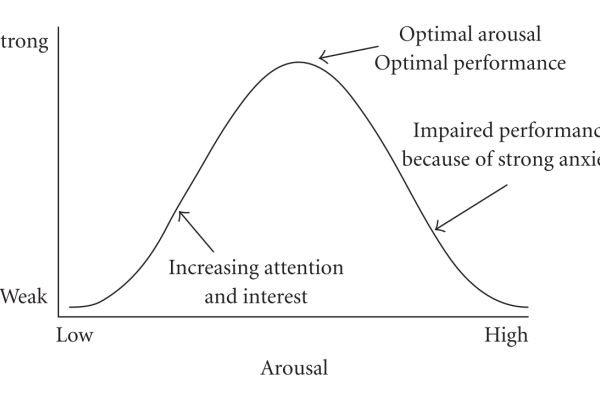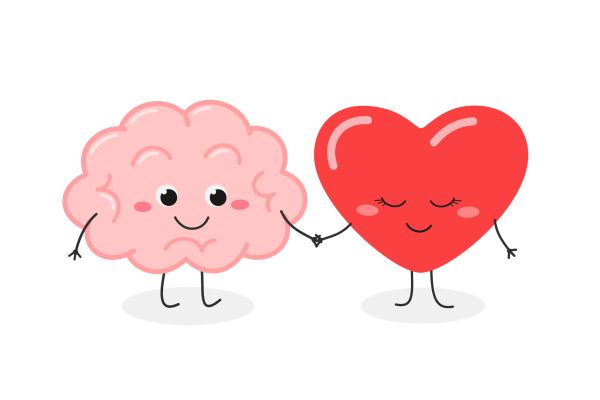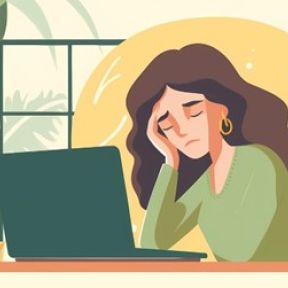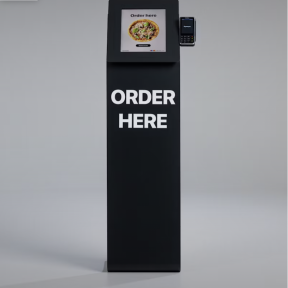Burnout is a state of emotional, mental, and often physical exhaustion brought on by prolonged or repeated stress. Though it’s most often caused by problems at work, it can also appear in other areas of life, such as parenting, caretaking, or romantic relationships.

Burnout is not simply a result of working long hours or juggling too many tasks, though those both play a role. The cynicism, depression, and lethargy that are characteristic of burnout most often occur when a person is not in control of how a job is carried out, at work or at home, or is asked to complete tasks that conflict with their sense of self.
Equally pressing is working toward a goal that doesn't resonate, or when a person lacks support. If a person doesn’t tailor responsibilities to match a true calling, or at least take a break once in a while, they could face burnout—as well as the mountain of mental and physical health problems that often come along with it, including headaches, fatigue, heartburn, and other gastrointestinal symptoms, as well as increased potential for alcohol, drug, or food misuse.
Physical and mental exhaustion, a sense of dread about work, and frequent feelings of cynicism, anger, or irritability are key signs of burnout. Those in helping professions (such as doctors) may notice dwindling compassion toward those in their care. Feeling like you can no longer do your job effectively may also signal burnout.
By definition, burnout is an extended period of stress that feels as though it cannot be ameliorated. If stress is short-lived or tied to a specific goal, it is most likely not harmful. If the stress feels never-ending and comes with feelings of emptiness, apathy, and hopelessness, it may be indicative of burnout.
Compassion fatigue is a condition in which someone becomes numb to the suffering of others, feels less able to display empathy toward them, or loses hope in their ability to help. It most often affects healthcare professionals, soldiers, or anyone who is regularly exposed to human suffering.
Any job can be a source of burnout; some data suggests that more than half of U.S. workers have experienced burnout at least once in their lives. Those with particularly high-stress jobs—such as lawyers, doctors, or police officers—may be more likely than those in low-stress professions to experience burnout.

While some work environments may be especially grinding—such as the medical profession or law enforcement—anyone who’s running out of gas can take steps to alleviate the deleterious effects of burnout and, if necessary, reevaluate their work life.
To counter burnout, having a sense of purpose, having an impact on others, or feeling as if one is making the world a better place are all valuable. Often, meaningfulness can counteract the negative aspects of a job. Other motivators include autonomy as well as a good, hard challenge.
Maybe, but it’s not the only option. Speaking up about your concerns or restructuring your work environment to address burnout may be less risky and equally effective. Nurturing your relationships, adopting self-care habits, and focusing on hobbies outside of work can also help restore your sense of self and mitigate stress.
When you have too many conflicting responsibilities, simply saying “no” to new tasks is an important (albeit challenging) way to reduce your workload. Scheduling regular breaks, starting and stopping at set times, and minimizing multi-tasking can all help maintain boundaries and reduce feelings of burnout.
Adjusting your work hours or location (perhaps by telecommuting) can help significantly, as can outsourcing or sharing responsibilities when possible. Setting clear boundaries between “work” and “life”—by not checking email during off-hours, for instance—practicing self-care, and allowing for adequate downtime are also useful strategies.
Self-care is an effective weapon in the fight against burnout, research shows. Though self-care looks different for everyone, common strategies include yoga, mindfulness meditation, massage, exercise, dietary changes, or practicing self-compassion.
It can be painful to watch a loved one struggle with burnout, especially because it’s rarely possible for you to address the root causes yourself. Instead, practicing empathic listening, encouraging self-care, and offering help with tasks outside of work may be the most effective ways to provide support.

Jobs aren’t the only source of the chronic stress that causes burnout. Parents, partners, and non-professional caregivers can also experience endless exhaustion, feel overwhelmed by their responsibilities, or secretly believe that they have failed at their role. These forms of burnout are referred to as parental burnout, relationship burnout, and caregiver burnout respectively.
Non-work burnout, however, is less well-known than that caused by career stress. Stereotypes and stigma—particularly related to parenting—can make those suffering from non-work-related burnout feel as if they are to blame for their challenges. As a result, they often hide their struggles from others.
But burnout, in any form, can have severe consequences if left untreated. Discussing it openly—either with a spouse, family members, friends, or a therapist—is often the first step to addressing its symptoms, getting needed help, and avoiding negative outcomes.
The idea that only bad parents get burned out is a harmful myth. Parenting is deeply rewarding for many. But it’s also demanding and challenging, and parents must balance work schedules, outside responsibilities, their own well-being, and potentially a child’s special needs—in many cases without adequate support.
Caring for a child with special needs and/or an aging parent may trigger burnout. Signs include persistent fatigue, frequent crying spells, and feelings of helplessness, anger, or frustration toward the person in your care. Taking care of your own health—and asking for help—can provide relief.
Romantic relationships can be as taxing as a full-time job and may cause similar feelings of burnout. If you don’t look forward to seeing your partner, feel cynical about your future, blame them for whatever goes wrong, or often fantasize about leaving, your relationship may be burning out.















